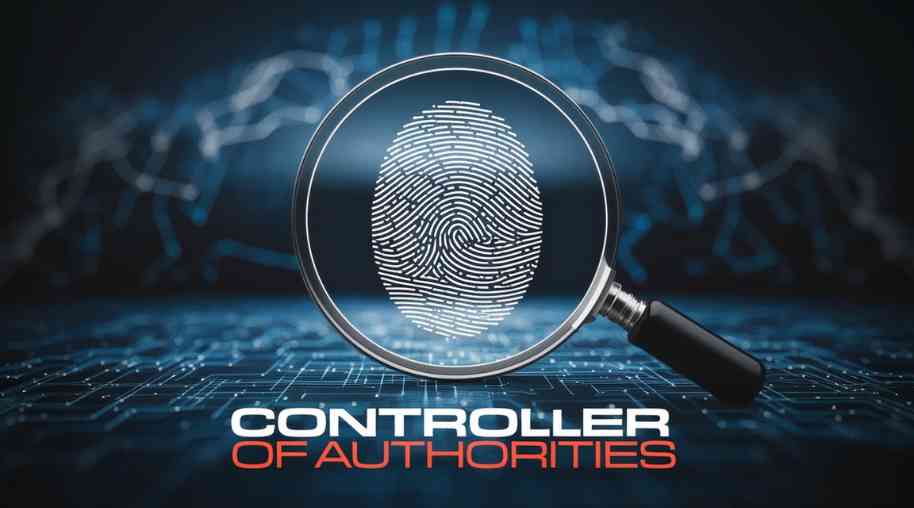CCA Full Form - Controller of Certifying Authorities
by Shashi Gaherwar
0 2243
Understanding the Role of the Controller of Certifying Authorities in Digital Security
In today’s digital era, secure online transactions, communications, and data storage are critical. With rising cyber threats, reliable digital security mechanisms are essential. The Controller of Certifying Authorities (CCA) in India plays a pivotal role in regulating Certifying Authorities and ensuring the integrity of digital signatures and public key infrastructure (PKI).

This article examines the CCA’s role, functions, and its importance in upholding digital security standards in India, alongside the legal framework supporting digital certification.
What Is the Controller of Certifying Authorities (CCA)?
The Controller of Certifying Authorities (CCA), established under the Information Technology Act, 2000, is a statutory body overseeing Certifying Authorities (CAs). CAs issue digital certificates that secure online communications and verify identities. The CCA ensures these certificates are trustworthy and legally valid, supporting India’s digital economy.
Functions of the Controller of Certifying Authorities
The CCA performs critical tasks to maintain India’s digital ecosystem:
- Regulating Certifying Authorities (CAs): Oversees CAs to ensure compliance with strict security standards for issuing digital certificates.
- Approval and Authorization of CAs: Authorizes only qualified organizations with robust infrastructure to issue certificates.
- Monitoring Compliance: Ensures CAs use encryption and secure channels to protect certificate integrity.
- Promoting Awareness: Educates businesses and individuals on the importance of digital signatures through programs and workshops.
- Advising the Government: Provides expertise on cybersecurity and PKI to shape digital security policies.
Public Key Infrastructure (PKI) and Digital Certificates
The CCA oversees Public Key Infrastructure (PKI), which uses digital certificates to secure online activities. PKI involves:
- Public Key: Freely shared to encrypt data.
- Private Key: Kept secret to decrypt data.
Digital certificates bind a public key to a holder’s identity, enabling:
- Digital Signatures: Authenticate signers and ensure document integrity.
- Encryption: Secure data for authorized access only.
- Secure Communication: Protect emails and transactions.
The Legal Framework for Digital Certification in India
The Information Technology Act, 2000 establishes the legal validity of digital signatures and electronic records, equating them to handwritten signatures. The CCA ensures certificates meet legal and technical standards, supporting e-commerce, e-filing, and other digital services.
Certifying Authorities and Their Role in the Digital Ecosystem
Certifying Authorities verify identities and issue digital certificates. Regulated by the CCA, they ensure secure transactions. Key CAs in India include:
- National Informatics Centre (NIC): Issues certificates for government agencies.
- e-Mudhra: Provides certificates for individuals and businesses.
- Sify Technologies: Offers digital signature services for sectors like healthcare and finance.
Challenges Faced by the Controller of Certifying Authorities
The CCA faces several challenges:
- Evolving Cybersecurity Threats: Requires constant updates to counter advanced cyber threats.
- Awareness and Adoption: Limited awareness or concerns about complexity hinder digital signature use.
- Regulation and Compliance: Managing growing numbers of CAs and providers for consistent compliance.
The Controller of Certifying Authorities (CCA) is vital for India’s secure digital ecosystem, ensuring trusted digital certificates and robust cybersecurity. By regulating CAs and promoting awareness, the CCA safeguards online transactions and privacy. As cyber threats evolve, the CCA’s role will remain crucial in advancing India’s digital innovation and security.
Further Learning Resources
If you’re passionate about building a successful blogging website, check out this helpful guide at Coding Tag – How to Start a Successful Blog. It offers practical steps and expert tips to kickstart your blogging journey!
For dedicated UPSC exam preparation, we highly recommend visiting www.iasmania.com. It offers well-structured resources, current affairs, and subject-wise notes tailored specifically for aspirants. Start your journey today!

Share:









Comments
Waiting for your comments